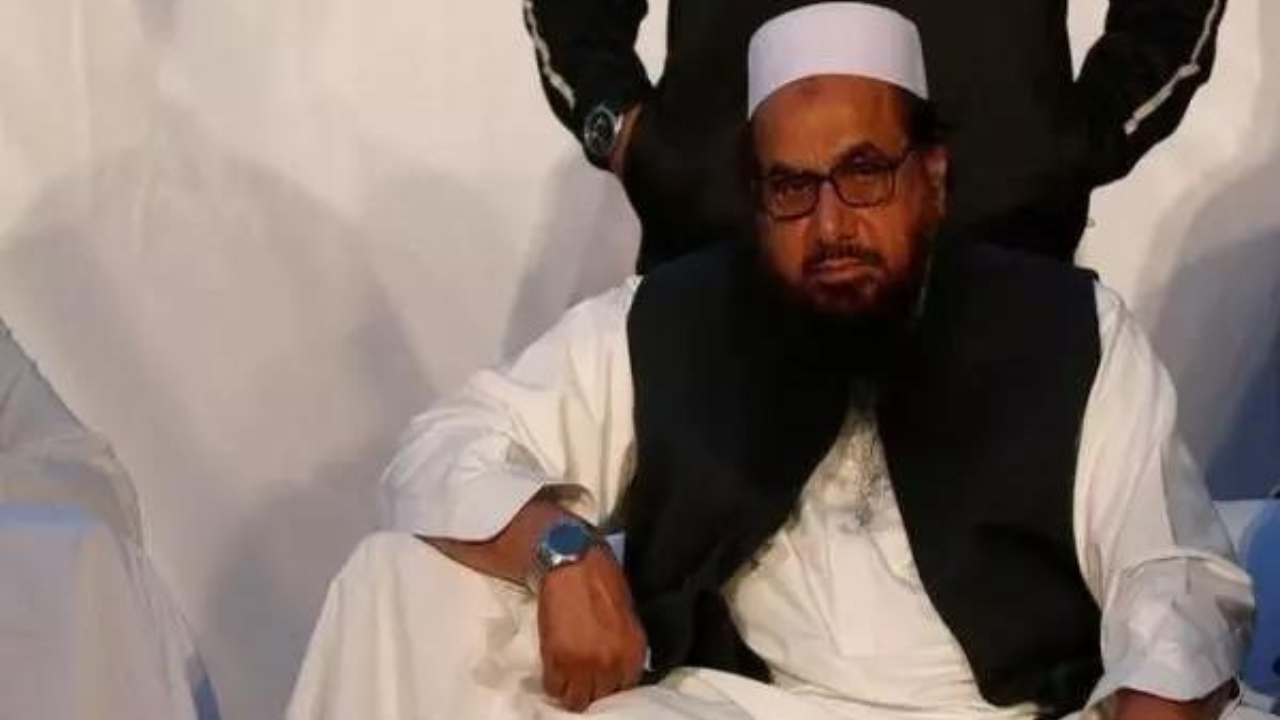[ad_1]
Address disclosure
- As per the UN document, Saeed, 73, was designated a global terrorist by the UN Security Council’s al-Qaida sanctions committee in December 2008. He commenced his sentence 78-year imprisonment sentence on February 12, 2020, after being convicted in seven terror financing cases, marking a significant milestone in the global fight against terrorism.
- As the primary leader of LeT, Hafiz Muhammad Saeed was instrumental in both the operational and financial aspects of the organization. He held the position of Amir, or leader, of Jamaat-ud-Dawa, recognized as an alias for LeT.
- In his earlier years, Saeed traveled to Afghanistan during the late 1970s or early 1980s for militant training, where he encountered Dr Abdullah Azzam, mentor to Osama bin Laden and other Afghan fighters. By 2005, Saeed was actively directing the deployment of LeT camp graduates from Pakistan, deciding their battleground assignments. Saeed’s involvement extended to managing a terrorist training camp, including its funding. He also played a pivotal role in expanding LeT’s reach by appointing an operative as the European fundraising coordinator and establishing a LeT office in Quetta, Pakistan in June 2006. This office was strategically set up to support Taliban operations in Afghanistan.
- The UN’s amended information lists Saeed’s residence as House No. 116E, Mohalla Johar, Lahore. This detail comes as part of the broader transparency efforts by the UN in tracking and disclosing information about internationally recognized terrorists.
Sanctions list update
Recently, the Security Council 1267 Committee updated its ISIL (Da’esh) and al-Qaida sanctions list, which includes individuals and entities subject to assets freeze, travel ban, and arms embargo.This update included the amendment of Saeed’s information, reflecting the latest developments in his legal situation.
Notable deaths
The UN committee also confirmed the death of Hafiz Abdul Salam Bhuttavi, a founding member of Lashkar-e-Taiba, and Maulana Fazlullah, the commander of Tehrik-e Taliban Pakistan (TTP).
Following Fazlullah’s confirmed death, Noor Wali Mehsud has been recognized as the leader of Tehrik-e Taliban Pakistan. His last known location was Paktika Province, Afghanistan.
Al Rashid Trust status
The amended information also noted the reported dissolution of the Al Rashid Trust, a group previously linked to al-Qaida and the Taliban. This organization had been involved in the financing of these terror groups but has shown no recent activity.
Ongoing UN efforts
The ISIL (Da’esh) and al-Qaida sanctions list is a critical tool used by the UN and its member states in the global effort to combat terrorism. Regular updates to this list ensure that it remains an effective instrument in the international community’s arsenal against terror.
India’s extradition request
- In December, India heightened its efforts to bring Saeed to justice by requesting his extradition from Pakistan. “The person in question (Hafiz Saeed) is wanted in numerous cases in India. He is also a UN-proscribed terrorist. In this regard, we have conveyed a request along with relevant supporting documents, to the government of Pakistan to extradite him to India to face trial in a particular case,” an MEA spokesperson said.
- This move was part of India’s ongoing pursuit to hold accountable those responsible for the 2008 Mumbai attacks.
- Pakistan, acknowledging the receipt of India’s extradition request, highlighted the absence of a bilateral extradition treaty between the two nations. This legal gap complicates India’s efforts to bring Saeed to trial on its soil.
The larger context
Muhammad Hafiz Saeed, despite being designated a terrorist by the UN and EU in the 2000s, evaded charges and extradition for nearly two decades. His eventual imprisonment in 2019 and the subsequent conviction represent a significant turn in the long-standing global effort to bring him to justice.
(With inputs from agencies)
[ad_2]
Source link




